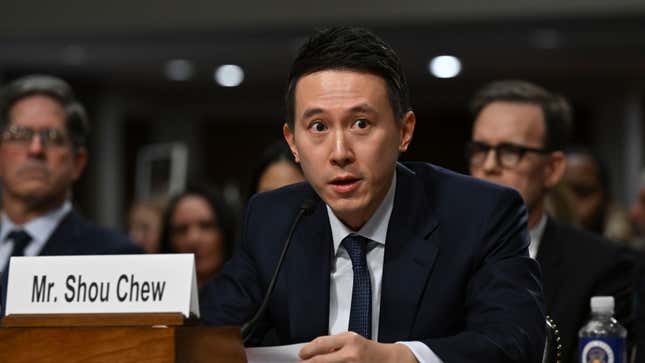I don't deny that at all. I think a good analogy is cheating in videogames:China has bots on all social media platforms already that manipulate the algorithms.
Bots cheating on Google/Facebook is like an individual player cheating in a game. There are still people in charge who are watching for discrepancies and making adjustments by playing whack-a-mole to reduce their efficiency:

Google is about to purge the AI spam littering its search Results
The company announced changes to its algorithm to deamplify websites that "feel like they were created for search engines instead of people"
However what happens when the game developer is cheating? TikTok being able to tweak its algorithms is analogous to that... And as a player, there's no way that we have the context to call them out on it. Unlike Google/Facebook/Amazon, they don't have motives marginally in line w/ America.
I'm curious why you think that the US government only does things to others that it's allowed to test in itself. History suggests that there is a level of cruelty/indifference to other nations in our approachThe US is doing psy-ops on it's own citizens. They are not going to shut out foreign countries from running influence campaigns because it would keep them from running the same game on us.
My counterargument here is my analogy about a player in a videogame cheating versus a game developer cheatingThe protecting citizens thing is a ridiculous argument.
So if your concern is algorithms, then why target TikTok and leave out Facebook/Twitter/Reddit, which are swarming with foreign bots? Regulation across all social media is one thing, but targeting TikTok alone? It doesn't pass the smell test.
From my perspective, i am relatively far left when it comes to democracy. Also though, similar to how Christians views on Christianity evolve in modern world, I also think that what it means to protect a democracy is not a static answer. I really don't think that some of the historical approaches to democracy accounted for the possibility of a foreign app that can track and influence the thoughts/interests of millions of Americans.It's crazy to say "not sustainable for a democracy" in defense of something so clearly undemocratic.









